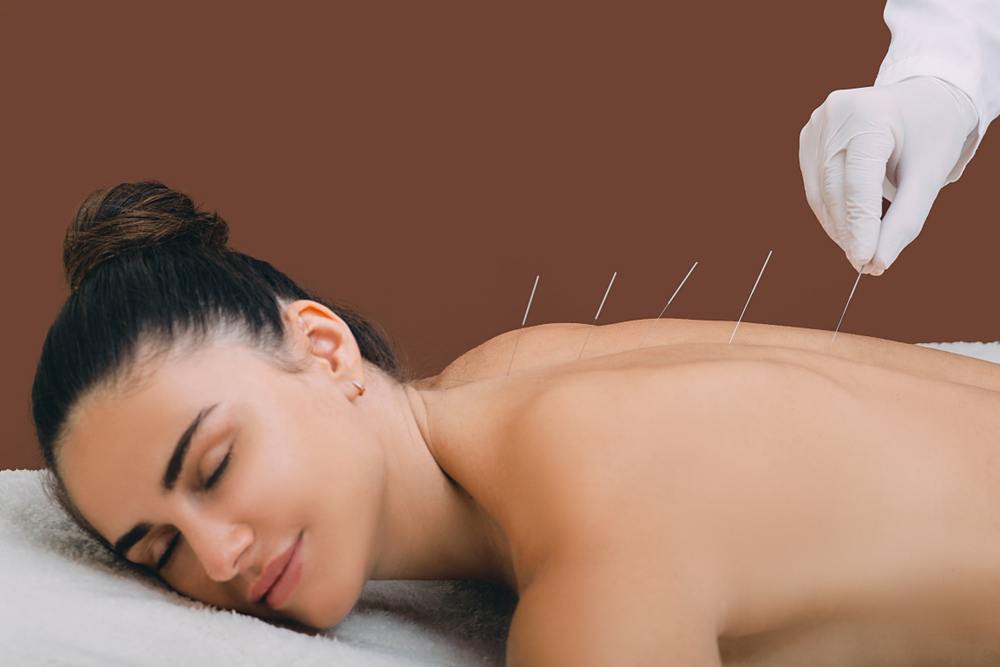Acupuncture for Weight Loss
In recent years, holistic approaches to weight loss have gained significant popularity as more people seek natural solutions for managing their weight. One such method is acupuncture, a treatment rooted in traditional Chinese medicine that has gained attention for its potential weight loss benefits. But how exactly does weight loss acupuncture work, and can it really help you shed those extra pounds?
In this page, we’ll explore how acupuncture can be an effective part of a comprehensive alternative weight loss treatment and whether it can support your journey toward better health.
Treat now, Pay later
Ensuring Comfort During the Procedure
Experience the transformation you deserve. Our expert team tailors every treatment to your unique beauty goals, using cutting-edge technology in a luxurious, calming environment. Whether it’s laser therapy, facials, or body contouring – your journey to confidence starts here..
What is Acupuncture for Weight Loss?
Acupuncture is an ancient practice rooted in traditional Chinese medicine (TCM) that involves inserting thin needles into specific points on the body. The goal is to restore the flow of energy, known as “Qi” (pronounced “chee”), which is believed to be crucial for maintaining health. According to TCM, an imbalance in Qi can contribute to various health issues, including weight gain.
By targeting specific points on the body, acupuncture helps stimulate various systems such as metabolism, digestion, and even the endocrine system, which are key components in managing body weight. Acupuncture is often seen as a natural weight loss method, aligning with the holistic philosophy of TCM.
How Does Acupuncture Help with Weight Loss?
1Managing Stress and Emotional Eating
Acupuncture can significantly lower stress by promoting relaxation and encouraging the release of endorphins, the body’s natural “feel-good” hormones. By reducing stress, acupuncture can also minimize emotional eating, a common contributor to weight gain. The connection between emotional eating and acupuncture has been well-documented in holistic treatments.
2Boosting Metabolism
Research suggests that acupuncture can enhance metabolic function, improving digestion and promoting more efficient absorption of nutrients, which is crucial for weight management. Acupuncture for metabolism is particularly useful for those looking to optimize their body’s natural processes.
3Hormonal Balance
Acupuncture has been shown to help regulate hormones like insulin and leptin, both of which influence hunger, fat storage, and the body’s energy metabolism. Since hormones play a significant role in weight management, the endocrine system and acupuncture are closely linked in helping to maintain balance
4Appetite Control
Certain acupuncture points, particularly on the ear (a technique known as auricular acupuncture), have been traditionally used to suppress appetite and help people control their cravings. This makes acupuncture for appetite control an attractive option for those struggling with overeating.
Scientific Studies on Acupuncture and Weight Loss
Although acupuncture has been used for thousands of years, scientific research on its effectiveness for weight loss is still developing. Here are several key studies that offer insight into how acupuncture might support weight loss:
- Ear Acupuncture for Appetite Control: A 2014 study published in Acupuncture in Medicine demonstrated that participants who received ear acupuncture targeting points related to hunger and digestion showed modest reductions in body mass index (BMI) and experienced some weight loss over an eight-week period.
- Acupuncture and Metabolic Function: A study published in The International Journal of Obesity revealed that women who combined acupuncture with a low-calorie diet saw greater weight loss than those who followed the diet alone. The research suggested that acupuncture may help regulate the body’s metabolism, amplifying the effects of dieting and further supporting acupuncture benefits for weight loss.
- Stress Management and Weight Control: Because stress is a significant contributor to weight gain, acupuncture’s ability to lower cortisol (a stress hormone) can reduce stress-related fat accumulation, particularly around the abdomen. This makes acupuncture an effective tool for long-term weight management through stress management and weight loss strategies.
Common Acupuncture Points for Weight Loss
A licensed acupuncturist will personalize treatments based on individual needs, but several acupuncture points are frequently used to support weight management:
Shenmen (Divine Gate): Found on the ear, this point helps reduce stress, curb cravings, and combat emotional eating.
Spleen 6 (Sanyinjiao): Located on the lower leg, this point is believed to aid digestion, regulate body fluids, and assist in weight control.
Stomach 36 (Zusanli): A key point for digestive health, it’s often used to boost metabolism and reduce bloating.
Ren 12 (Zhongwan): Positioned on the abdomen, this point is linked to improved digestion and can help alleviate bloating or indigestion.
Ear Acupuncture: Ear points are commonly used for appetite suppression and controlling hunger signals.
Incorporating Acupuncture into a Holistic Weight Loss Plan
It’s important to understand that acupuncture for weight loss is most effective when combined with other healthy lifestyle habits. While acupuncture can be a valuable component of your wellness plan, a well-rounded approach is necessary to achieve lasting weight loss results.
Here’s how acupuncture fits into a broader weight management strategy:
- Balanced Diet: while Acupuncture can enhance digestion and metabolism, a nutritious diet is essential for sustainable weight loss. Focus on eating whole foods, vegetables, lean proteins, and controlling portion sizes to optimize your results.
- Regular Exercise: Acupuncture can increase energy levels and reduce stress, but consistent physical activity is still critical for burning calories and maintaining muscle. Incorporate a mix of cardiovascular exercises, strength training, and flexibility workouts into your routine.
- Mindfulness and Stress Reduction: Since acupuncture helps reduce stress, combining it with mindfulness practices such as meditation, yoga, or deep breathing can amplify its effects. Reducing stress levels is essential to maintaining a healthy weight and avoiding emotional eating.
- Patience and Consistency: Like any other weight loss method, acupuncture requires time and regular sessions to be effective. Most acupuncturists recommend committing to several weeks or even months of consistent treatment to see noticeable changes in weight. Be patient, as results will vary depending on your individual health and lifestyle.
Is Acupuncture Safe for Weight Loss?
Acupuncture is generally safe when performed by a certified practitioner, but there are a few key things to keep in mind:
Find a Qualified Acupuncturist: Always seek out a licensed acupuncturist with experience in weight management. It’s important to verify their credentials and read reviews to ensure you’re receiving safe and effective care.
Individual Results May Vary: Acupuncture doesn’t work the same for everyone. Results can depend on factors like your age, overall health, and lifestyle habits.
A Complementary Therapy: It’s crucial to understand that acupuncture is not a stand-alone treatment for weight loss. It works best when combined with healthy eating, exercise, and other weight management techniques.
Conclusion
Before starting any new weight loss regimen, including acupuncture, consult your healthcare provider—especially if you have pre-existing health conditions. With the right combination of lifestyle changes and regular acupuncture sessions, achieving and maintaining your weight loss goals may become more manageable.





